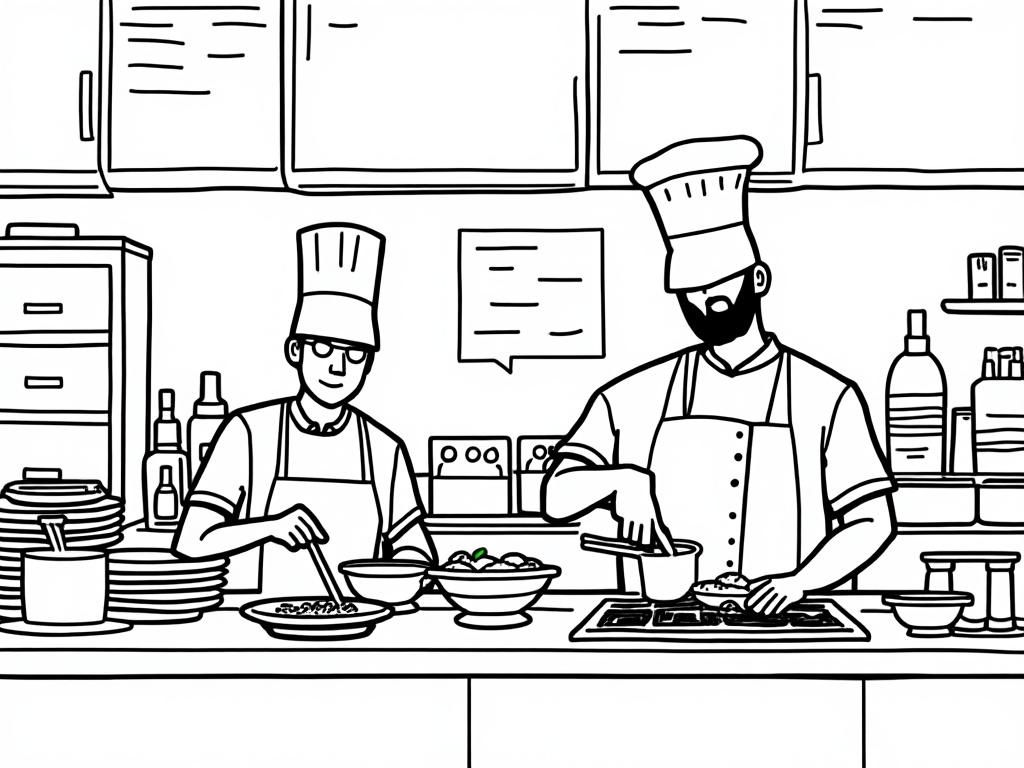
How to Start a Home Food Business in Dubai: Your Complete 2024 Roadmap
Reading time: 12 minutes
Table of Contents
- Why Dubai is Perfect for Home Food Businesses
- Profitable Home Food Business Ideas
- Legal Requirements and Licensing
- Step-by-Step Setup Guide
- Common Challenges and Solutions
- Real Success Stories from Dubai
- Your Launch Roadmap
- Frequently Asked Questions
Why Dubai is Perfect for Home Food Businesses
Ever wondered why Dubai has become the ultimate destination for food entrepreneurs? You’re looking at a city where over 200 nationalities create an incredibly diverse palate, and the food delivery market alone is projected to reach $1.2 billion by 2025.
Here’s the straight talk: Dubai’s home food business landscape isn’t just growing—it’s exploding with opportunity.
Key Market Advantages:
- 85% of Dubai’s population consists of expatriates craving authentic home-style cuisine
- Food delivery apps recorded 340% growth in orders during 2020-2023
- Government initiatives actively support small food businesses
- No personal income tax means higher profit margins
Consider Sarah Al-Mahmoud, who started her Lebanese home bakery in 2022. Within 18 months, she’s generating AED 15,000 monthly revenue from her apartment kitchen in Jumeirah Lake Towers. Her secret? Understanding that Dubai residents pay premium prices for authentic, homemade quality.
Profitable Home Food Business Ideas
Let’s dive into the most lucrative home food business opportunities that are actually thriving in Dubai’s market:
1. Authentic Ethnic Cuisines
Dubai’s multicultural population creates constant demand for authentic home-style cooking. Filipino adobo, Indian biryanis, and Middle Eastern mezze platters consistently outperform generic options. The key is authenticity—residents can spot the difference between restaurant-style and genuine home cooking.
2. Healthy Meal Prep Services
With 68% of Dubai residents actively trying to maintain healthier lifestyles, meal prep services are booming. Focus on keto-friendly, vegan, or diabetic-conscious options. Average pricing ranges from AED 35-65 per meal, with successful businesses delivering 50-200 meals weekly.
3. Artisan Baked Goods
Custom cakes, specialty breads, and traditional pastries command premium prices. One home baker in Marina generates AED 8,000 monthly just from weekend orders. The secret? Specializing in sugar-free and gluten-free options that mainstream bakeries often overlook.
4. Specialty Condiments and Preserves
Homemade pickles, artisan jams, and specialty sauces might seem niche, but they’re incredibly profitable. Low overhead, long shelf life, and high margins make this an ideal starting point for new entrepreneurs.
Dubai Home Food Business Revenue Comparison
Legal Requirements and Licensing
Navigating Dubai’s food business regulations might seem overwhelming, but here’s your practical roadmap to compliance:
Essential Licenses and Permits
| License Type | Issuing Authority | Cost (AED) | Processing Time | Validity |
|---|---|---|---|---|
| Home-Based Food Business License | Dubai Economy (DED) | 2,500-4,000 | 7-10 days | 1 year |
| Food Handler’s Permit | Dubai Municipality | 200-350 | 2-3 days | 2 years |
| Home Kitchen Approval | Dubai Municipality | 500-800 | 5-7 days | 1 year |
| NOC from Building Management | Property Management | Free-500 | 1-3 days | As needed |
Food Safety Compliance
Dubai Municipality takes food safety seriously. Your home kitchen must meet specific standards:
- Separate storage areas for raw and cooked foods
- Temperature monitoring for refrigeration units
- Pest control measures documented quarterly
- Water quality testing if using tap water for cooking
Pro tip: Schedule your municipality inspection during your slowest preparation time. Inspectors appreciate seeing your normal workflow rather than a staged setup.
Step-by-Step Setup Guide
Phase 1: Foundation Building (Weeks 1-2)
Develop Your Business Concept
Before diving into paperwork, crystallize your vision. What’s your unique value proposition? Mumbai street food for homesick Indians? Keto-friendly Arabic sweets? Your concept should solve a specific problem for a defined audience.
Create a simple business plan addressing:
- Target customer demographics and psychographics
- Pricing strategy based on local market research
- Initial investment requirements (typically AED 5,000-15,000)
- Monthly break-even calculations
Phase 2: Legal Foundation (Weeks 3-4)
License Application Process
Start with Dubai Economy’s online portal. The process is more streamlined than most entrepreneurs expect, but timing matters. Submit applications early in the week—government offices process faster Monday through Wednesday.
Required documents checklist:
- Emirates ID copy
- Passport copy with residence visa
- Tenancy contract (proving home address)
- NOC from building management
- Food safety training certificate
Phase 3: Kitchen Setup and Equipment (Weeks 5-6)
Your kitchen setup doesn’t need to be perfect, but it must be compliant and efficient. Focus on essentials:
Must-Have Equipment:
- Commercial-grade refrigerator with temperature monitoring
- Separate cutting boards for different food types
- Digital scale for consistent portioning
- Food-safe storage containers with labeling system
- Basic fire safety equipment
Phase 4: Digital Presence and Marketing (Weeks 7-8)
In Dubai’s competitive market, your online presence often determines success more than food quality alone. Start with Instagram and WhatsApp Business—these platforms drive 78% of home food business orders in Dubai.
Instagram Strategy:
- Post behind-the-scenes content showing your cooking process
- Use location tags for your area (Marina, Downtown, JLT, etc.)
- Partner with local food bloggers for authentic reviews
- Share customer testimonials with permission
Common Challenges and Solutions
Challenge 1: Scaling Production While Maintaining Quality
Every successful home food business faces this dilemma. You’re getting more orders, but your kitchen space remains limited. Here’s how successful entrepreneurs solve this:
Solution Strategy:
- Batch cooking optimization: Plan weekly menus that share common ingredients
- Pre-preparation systems: Dedicate specific days to prep work
- Strategic partnerships: Collaborate with other home cooks to share workload
- Premium pricing: Increase prices rather than compromising quality
Ahmed Hassan from Al Barsha learned this lesson early. When his Pakistani curry orders exceeded his kitchen capacity, he raised prices by 25% and focused on fewer, higher-value customers. His monthly revenue actually increased while his stress decreased.
Challenge 2: Consistent Customer Acquisition
The feast-or-famine cycle plagues many home food businesses. Some weeks you’re overwhelmed with orders; others, your phone stays silent.
Sustainable Marketing Approach:
- Subscription models: Offer weekly meal plans for regular income
- Corporate partnerships: Provide office catering for steady bulk orders
- Seasonal menu planning: Anticipate demand fluctuations
- Referral incentives: Reward customers for bringing new business
Challenge 3: Managing Delivery Logistics
Dubai’s traffic and distance challenges can make delivery expensive and unpredictable. Smart entrepreneurs don’t fight the system—they work with it.
Delivery Optimization:
- Partner with existing delivery apps (Talabat, Deliveroo, Uber Eats)
- Create delivery zones with minimum order requirements
- Offer pickup options with incentives
- Schedule deliveries in batches by area
Real Success Stories from Dubai
Case Study: Priya’s Indian Tiffin Service
Priya Sharma started her home-based Indian tiffin service in Discovery Gardens with just AED 3,000 investment. Her target? Young Indian professionals missing home-cooked meals.
Her Winning Strategy:
- Fixed daily menu eliminating choice paralysis
- Subscription-based model ensuring predictable revenue
- WhatsApp group for customers creating community feel
- Gradual expansion to nearby areas based on demand
Results after 14 months:
- 180 regular subscribers
- AED 22,000 monthly revenue
- 85% customer retention rate
- Expanded to two additional locations
Priya’s insight: “Success isn’t about cooking the best food—it’s about consistently solving your customers’ daily meal problem.”
Case Study: Omar’s Weekend Bakery
Omar Al-Rashid turned his passion for traditional Emirati sweets into a thriving weekend business. Working full-time in finance, he bakes exclusively on Thursday-Friday, focusing on premium orders.
His Approach:
- Limited availability creating urgency and exclusivity
- High-quality traditional recipes with modern presentation
- Premium pricing strategy (AED 80-150 per order)
- Instagram-focused marketing showcasing artistic presentation
Weekend revenues now exceed his weekday salary, and he’s considering transitioning to full-time entrepreneurship.
Your Launch Roadmap: From Idea to Income
Ready to transform your culinary passion into profitable business? Here’s your actionable 90-day roadmap:
Days 1-30: Foundation Phase
- Week 1: Validate your concept with 20 potential customers through surveys
- Week 2: Research competitors and refine your unique value proposition
- Week 3: Calculate startup costs and secure initial funding
- Week 4: Begin license application process and food safety training
Days 31-60: Setup Phase
- Week 5-6: Kitchen setup and equipment procurement
- Week 7: Obtain all necessary licenses and permits
- Week 8: Create social media presence and initial content
Days 61-90: Launch Phase
- Week 9-10: Soft launch with friends and family for feedback
- Week 11: Official launch with promotional campaign
- Week 12: Analyze first month’s data and optimize operations
Success Metrics to Track:
- Customer acquisition cost vs. lifetime value
- Weekly order volume and average order size
- Customer retention rate and repeat order frequency
- Social media engagement and conversion rates
The home food business landscape in Dubai will continue evolving with increasing demand for authentic, convenient, and healthy options. Position yourself not just as a food provider, but as a solution to busy Dubai residents’ daily challenges.
What’s stopping you from taking the first step toward your food business dream? The Dubai market is waiting for your unique culinary contribution, and the best time to start was yesterday—the second-best time is right now.
Frequently Asked Questions
Can I operate a home food business from a rented apartment in Dubai?
Yes, you can operate from a rented apartment, but you need written permission (NOC) from your landlord and building management. Most modern apartment complexes in Dubai allow home businesses as long as they don’t disturb neighbors or violate building regulations. Ensure your tenancy contract doesn’t explicitly prohibit commercial activities, and maintain proper insurance coverage.
What’s the realistic monthly income potential for a home food business in Dubai?
Income varies significantly based on your niche, effort, and market positioning. Beginners typically earn AED 2,000-5,000 monthly in their first 6 months. Established businesses average AED 8,000-15,000 monthly, while successful operations can generate AED 20,000-35,000+ monthly. The key factors are consistent quality, smart marketing, and understanding your target market’s willingness to pay premium prices for authentic homemade food.
How do I handle food delivery and logistics efficiently?
Start with a hybrid approach: partner with delivery apps for broader reach while maintaining direct delivery for regular customers. Create delivery zones with minimum order requirements (typically AED 100-150) to ensure profitability. Many successful home food businesses use WhatsApp for direct orders and coordinate with freelance delivery drivers or apps like Careem for fulfillment. Consider offering pickup options with small discounts to reduce delivery costs.

Article reviewed by Emma van der Berg, Sustainability Analyst | Researching Green Energy Projects, on June 16, 2025
